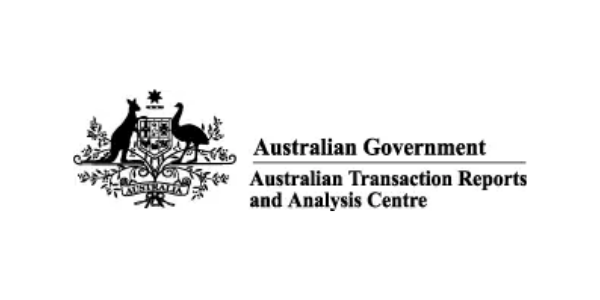Crypto regulation in Australia presents a complex landscape that balances innovation with compliance. The nation has emerged as a significant playground for digital currencies due to its supportive governmental stance and neutral jurisdiction, fostering substantial growth in the fintech sector. Despite this, Australian regulators like the Australian Securities and Investments Commission (ASIC) are continuously refining their approach to crypto, focusing on consumer protection without imposing overly specific laws on digital assets themselves.
Various legislative consultations have aimed to clarify regulatory frameworks, especially for crypto asset service providers, ensuring financial stability while accommodating the unique nature of digital currencies. As Australia teeters between innovation and regulation, understanding its current laws is vital for investors and businesses aiming to navigate this evolving space effectively.
Related News: Stablecoins: Are They Truly the Future of Money?
Overview of Cryptocurrency Legality in Australia
Australia’s approach to cryptocurrency regulation is a blend of pragmatism and caution. The legal framework is crafted to empower innovation while safeguarding the interests of consumers and businesses. As part of the global landscape, Australia’s regulatory environment reflects a growing acceptance of digital assets, with a focus on defining clear legal pathways for their use.

Photo by Donovan Kelly
Legal Status of Cryptocurrencies
In Australia, cryptocurrencies such as Bitcoin and Ethereum are recognized as legal and are treated primarily as property. This classification means individuals and businesses can trade, receive, spend, and store cryptocurrency without restrictions usually imposed on cash. As a result, crypto dealings are subject to tax laws and regulations that apply to property transactions.
Related News: How to Implement DCA Crypto Strategy for Consistent Gains
Regulatory Framework
The Australian government’s approach is to regulate the services surrounding crypto assets, not the assets themselves. Here’s how it works:
- Anti-Money Laundering and Counter-Terrorism Financing (AML/CTF): Since 2018, cryptocurrency businesses must comply with AML/CTF guidelines to prevent misuse of digital currencies for illicit purposes.
- Australian Securities and Investments Commission (ASIC): ASIC monitors crypto assets, especially those forming part of financial products like exchange-traded products (ETPs). They provide guidance on when crypto assets fall under the existing financial services laws.
- Token Mapping and Digital Asset Services: Recent government efforts include defining digital asset types through a token mapping consultation, preparing for future regulatory challenges. Discussions continue about licensing crypto-asset service providers, though firm regulations are pending.
Regional Variation and Impact
While Australia’s regulation of digital assets is relatively uniform across the country, variances can occur based on jurisdictional interpretation. Hence, businesses must stay informed about state-level nuances that may affect compliance with national laws.
Upcoming Legislative Proposals
The future of crypto regulation is dynamic. The Government is working on frameworks to support innovation while addressing risks, such as:
- Licensing and Custody Requirements: Mid-2023 was expected to see the release of new rules for crypto asset service providers, aligning with standards for traditional financial services.
- Stablecoin Oversight: With stablecoins becoming more integral to the Australian payments landscape, regulatory supervision is set to increase.
By treating cryptocurrency as property and centering regulations on the associated services, Australia fosters an environment where digital assets can flourish under safety nets. The integration of policies reflects a balance between innovation and protective measures, ensuring a sustainable path forward for cryptocurrency within the country.
Related Read: Thailand Launches Regulatory Sandbox to Foster Crypto Innovation
Key Regulatory Bodies Governing Crypto in Australia
Australia stands as a unique landscape for cryptocurrency, driven by a combination of innovation and regulation. Understanding the key regulatory bodies is crucial for anyone looking to navigate the crypto waters. Two pioneering entities, the Australian Securities and Investments Commission (ASIC) and the Australian Transaction Reports and Analysis Centre (AUSTRAC), play pivotal roles in shaping the crypto regulatory framework.

Photo by Donovan Kelly
Australian Securities and Investments Commission (ASIC)
The Australian Securities and Investments Commission, or ASIC, operates as the financial watchdog of Australia. Its tentacles reach into numerous aspects of the financial industry, including cryptocurrency exchanges and Initial Coin Offerings (ICOs). ASIC’s mission goes beyond mere supervision; it aims to protect consumers by ensuring transparency and accountability among crypto players.
ASIC requires cryptocurrency exchanges to hold an Australian market license unless they fall under an exemption, which safeguards users from unregulated operators. This licensing demands that the exchange meet robust standards for financial services, a crucial aspect that helps build trust among users who might still be skeptical of crypto’s evolving nature. ICOs, a method to raise capital through cryptocurrency, also come under ASIC’s scrutiny. They must comply with established securities laws, making ICOs adhere to offerings similar to traditional securities, thus protecting investors from potential scams.
ASIC’s approach to crypto regulation emphasizes maintaining market integrity while fostering innovation. By focusing on compliance with existing financial services laws, ASIC ensures that cryptocurrency operations align with broader market expectations.
Related News: How to Conduct Crypto Market Sentiment Analysis: A Step-by-Step Guide
Australian Transaction Reports and Analysis Centre (AUSTRAC)

AUSTRAC is the sentinel against financial crimes in the crypto sphere, enforcing Australia’s anti-money laundering (AML) and counter-terrorism financing (CTF) laws. As digital currencies grow in popularity, so do the risks associated with illegal financial activities. AUSTRAC’s robust framework helps shield both the economy and the public by mandating crypto exchanges to register and report suspicious activities.
Under AUSTRAC’s guidelines, digital currency exchange providers must enroll with the agency to operate legally in Australia. This registration is not just a formality; it requires exchanges to implement rigorous customer identification procedures and ongoing client monitoring. The enforcement of these stringent regulations ensures that cryptocurrencies do not become a playground for financial crimes or terrorism financing.
Moreover, AUSTRAC’s role extends to creating comprehensive guides for digital currency businesses, helping them understand and fulfill their legal obligations. These efforts are vital in a world where the line between innovation and crime can sometimes blur.
For those eager to dive deeper into the intricate world of crypto regulations, Australia offers rich groundwork for exploration. With ASIC and AUSTRAC playing pivotal roles, understanding their mandates can provide valuable insights into navigating the crypto terrain.
Related News: Crypto Staking: How It Works and How It Benefits Your Holdings
Specific Regulations Impacting Cryptocurrency Operations
In Australia, the landscape of cryptocurrency regulation is constantly evolving as regulators strive to keep pace with technological advancements. As investors and businesses engage with digital assets, understanding the specific regulations that impact cryptocurrency operations becomes crucial. Here are two essential areas to consider.
Financial Services Regulation
Australia’s financial services regulations have a profound impact on crypto assets and exchanges. Though the country has been forward-thinking in recognising the potential of blockchain technology, it maintains a cautious approach to ensure consumer safety and market integrity.
- Licensing Requirements: For a cryptocurrency platform to operate legally, it must adhere to specific regulatory requirements. Platform operators in Australia must secure an Australian Market Licence, unless they qualify for an exemption. Without proper licensing, these platforms could face severe legal ramifications.
- Regulatory Framework: Cryptocurrency is often treated similarly to financial products under the Corporations Act 2001, which means that businesses dealing in crypto assets must comply with the associated legal obligations. These businesses might need an Australian Financial Services License (AFSL) depending on their operations.
- Anti-Money Laundering (AML): Since 2018, digital currencies have been under Australia’s AML/CTF regime. This reflects the government’s recognition of the potential risks related to money laundering and terrorism financing associated with crypto.
Consumer Protection Laws
With the rise of digital currencies, protecting consumers has become a focal point for Australian regulators. As crypto transactions become more commonplace, the legal framework aims to safeguard everyday investors from potential financial harm.
- Disclosure Requirements: Consumer protection necessitates that clear and honest information be provided to investors. Just as with traditional financial products, crypto-related services must avoid misleading statements that could deceive consumers.
- Fraud Prevention: Regulators are keen on reducing fraud risks within the crypto space. There have been high-profile enforcement actions targeting unlicensed activities, highlighting the importance of operating within legal boundaries.
- Investor Education: Beyond regulations, consumer protection extends to education. The government and regulatory bodies are working to equip consumers with the knowledge to make informed decisions about their investments in the crypto space.
These regulations not only ensure that cryptocurrency remains a viable and trustworthy medium of exchange in Australia but also protect the rights and interests of all stakeholders involved. Understanding these frameworks helps businesses and users navigate the complexities of the crypto world with confidence.
State-Specific Regulations and Variations
Australia’s approach to cryptocurrency regulation combines federal guidelines with nuances specific to individual states. This variation allows each state to address unique local considerations while aligning with national standards. Here, we explore the individual regulations and initiatives in New South Wales, Victoria, Queensland, and Western Australia related to the ever-evolving landscape of crypto regulation in Australia.
New South Wales
New South Wales (NSW) stands as a pioneer in embracing innovative technologies, including cryptocurrency. Currently, NSW does not have independent crypto regulations separate from national laws but actively participates in pilot programs and blockchain trials to forge a path in fintech. These initiatives aim to ensure that businesses operating within the state adopt compliant practices adhering to federal regulations. The state government also encourages educational programs to help citizens understand the potential and risks associated with digital currencies.
Victoria
Victoria approaches cryptocurrency with caution while maintaining a supportive stance towards technology and innovation. The region collaborates closely with federal bodies to ensure the implementation of existing regulations, focusing on consumer protection and reducing risks associated with crypto investments. Initiatives in Victoria often highlight the importance of adhering to the Australian Securities and Investments Commission (ASIC) guidelines, ensuring businesses and investors align with nationwide compliance measures. There’s an emphasis on fostering transparent and secure crypto-related businesses within the framework of Australia’s financial policies.
Queensland
Queensland is known for its proactive stance in encouraging the use of cryptocurrency and blockchain technology as part of its digital economy strategy. While Queensland adheres to the overarching rules of crypto regulation in Australia, it uniquely positions itself as a haven for crypto businesses through incentives and supportive measures. Initiatives include collaborating with local universities and tech institutions to develop blockchain courses, thus contributing to the talent pool required for a thriving crypto economy. The state’s focus on innovation aligns with federal efforts without imposing additional state-specific regulations.
Western Australia
Western Australia primarily follows the standards set at the federal level but brings attention to the mining and resources sectors where blockchain technology can play a pivotal role. The state encourages the use of blockchain for improving efficiency and transparency in these industries. While specific state regulations for cryptocurrencies are limited, Western Australia promotes awareness and adoption through workshops and summits, aligning closely with national efforts. The region emphasizes compliance with existing financial regulations while exploring blockchain’s potential to transform conventional practices.
In conclusion, while each state in Australia follows the federal framework, there are variations in how actively they engage and promote cryptocurrency and blockchain initiatives. These state-specific insights reveal a collective yet diversified approach towards nurturing a digitally empowered economy in the country.













